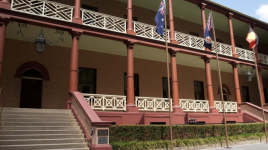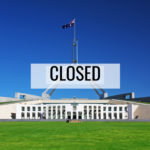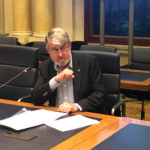What is a Parliamentary Inquiry in New South Wales?

Former New South Wales deputy premier John Barilaro has appeared before a parliamentary committee into his lucrative yet controversial appointment as a trade commissioner to the United States.
Despite evidence presented to the inquiry which suggests that his appointment may have been more about nepotism than merit, Mr Barilaro insisted that his appointment was above board, although admitting it was “not as clean as it could have been”.
Questionable appointment
During questioning, Mr Barilaro rejected the assertion that he fast-tracked a cabinet submission relating to appointment to increase his own prospects of obtaining the role.
He testified that he communicated with a number of key colleagues about the role, none of whom raised concerns about his interest in the position or his conduct being improper. These, according to Mr Barilaro, included premier Dominic Perrottet, treasurer Matt Kean and former trade minister Stuart Ayres.
Whether the former deputy premier’s claims are true of not, questions remain as to why he was appointed to the position after it had already been awarded to former senior public servant Jenny West, a person who is vastly experienced in trade affairs.
Ms West previously gave evidence before the commission that she was advised she was successful in obtaining the position, before being told several days later that the job offer was revoked because it had become a ministerial appointment..
During his testimony, Mr Barilaro said he “didn’t recall” a briefing note sent to his office at that time stating that Ms West had been selected for the role, claiming he was oblivious to her appointment until the inquiry. He did, however, admit that the briefing note contained his own electronic signature.
Taxpayers deserve better
And while Mr Barilaro says he regrets applying for the role – from since he has resigned – and claims to have gone through ‘personal hell’ over it, there are many who believe he is not the victim he wishes to make himself out to be.
New South Wales taxpayers deserve transparency in dealings such as these and accountability for conduct which may amount to cronyism or nepotism, and waste their hard-earned income.
While the total cost of the entire debacle is unknown, nearly a million dollars has already been spent on refurbishing the New York office. There are also questions about why the move from California to New York was necessary in the first place, and if so, whether such a large spend was justifiable.
It is hoped the parliamentary inquiry will shed some light on these matters, but many feel the process is a case of “shutting the gate after the horse has bolted” and that real transparency and accountability has become unachievable in states and territories across the nation, as well as on a federal level.
As to the latter, Australia remains the only Western democracy that does not have a national Bill or Charter of Rights.
All of that said, parliamentary inquiries have the potential to inform the public on what happens behind the closed doors of our politicians.
What is a parliamentary inquiry in New South Wales?
The stated objective of parliamentary inquiries is to assist parliament in the performance of its functions.
They involve the appointment of members by either or both houses of parliament, who are tasked with examining decisions, conduct and/or issues in greater detail than may be possible in open parliament.
The objectives of committees include raising public awareness about matters that are being considered by parliament, encouraging debate about such matters, providing transparency and accountability through scrutinising matters and informing policy-making through the consideration of submissions from stakeholders as well as the broader community.
Committees can receive such written submissions, seek advice from experts and conduct hearings where witnesses attend and testify, where such evidence is scrutinised and at the conclusion of which findings are reported and recommendations may be made.
Any recommendations may or may not be acted upon by parliament.
The hearing process
Hearings before parliamentary committee can involve producing materials, playing recordings and questioning witnesses.
This process can take several days or even weeks.
As stated, the committee will then prepare a report of its findings – which will normally contain conclusions and make recommendations.
The report is presented to a house of parliament, or both houses in the case of a joint committee.
Committees have considerable powers, usually delegated to them by the House(s) appointing them, including the power to compel witnesses to attend hearings and to answer questions.
Parliamentary privilege
All committee proceedings (including inquiries) do fall under the legal rights and immunity of ‘Parliamentary Privilege’, which means that members and others participating, including witnesses giving evidence, are protected from being criminally prosecuted or made civilly liable for anything they may say, or submit in writing, during proceedings.
The Parliamentary Privileges Act 1987 outlines the rules relating to such privilege in detail, including:
- the privileges or immunities of the houses of the parliament; and
- the powers of the houses to protect the integrity of their processes, including the power to punish contempt of due process.







